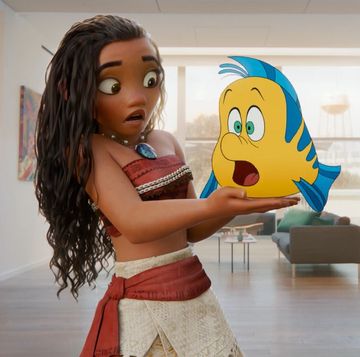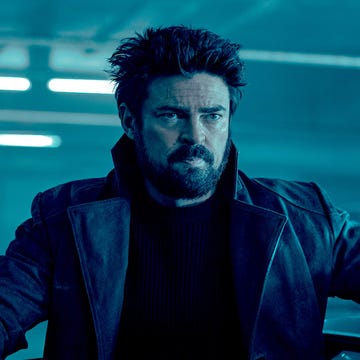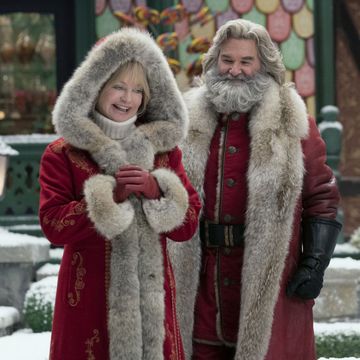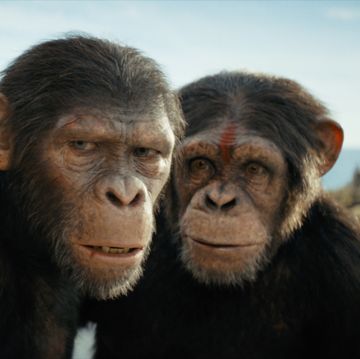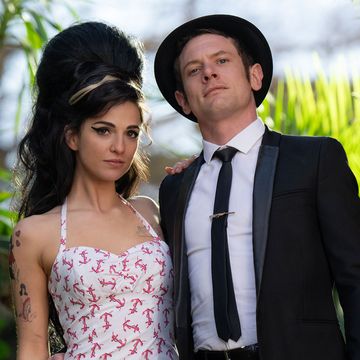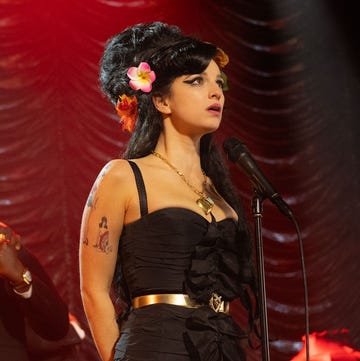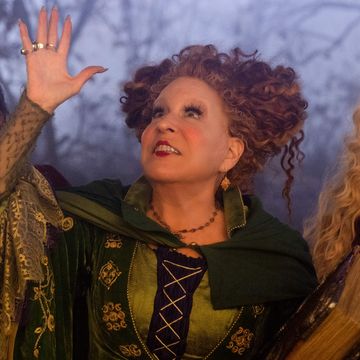Over the weekend, it was confirmed that Francis Matthews - a prolific and respected actor, star of stage and screen - had sadly died, aged 86.
As Captain Scarlet - the hero of Gerry Anderson's '60s 'Supermarionation' series - Matthews was one of the iconic voices of this writer's childhood.
To mark his passing, the Week in Geek revisits the first episode of Captain Scarlet and the Mysterons - first broadcast on UK television almost 50 years ago.
"The finger is on the trigger - about to unleash a force with terrible powers, beyond the comprehension of man. This force we shall know as… The Mysterons."
It's not your average science fiction children's series that opens with a moody and atmospheric crawl into a dark and dirty alley, where a lone gunman sprays bullets before being felled by return fire.
But Captain Scarlet and the Mysterons was far from your average kids' show - from the outset, it's clear that this is a more sophisticated, more 'grown-up' beast than many of its contemporaries, including some of Gerry Anderson's own efforts.
Yes, the puppets employed here are far more lifelike than those featured in the more popular Thunderbirds - even the oft-mocked close-up cutaways to human hands aren't as jarring as you remember - but it's so much more than that.
What makes Captain Scarlet a more mature piece of work than, say, Thunderbirds is the show's willingness to revel in its own murky morality right from the off. The first thing we ever see Scarlet do is unflinchingly gun down an assailant, with Ed Bishop's narrator remarkably informing the viewer directly afterwards: "This man will be our hero."
Scarlet's opponents, the Mysterons, are not out-and-out villains either - though their "slow but nonetheless effective" reprisals are unquestionably bordering on the extreme, these alien aggressors are actually the victims - subjected to an unprovoked attack from hysterical humans.
Having the Mysterons remain invisible is a masterstroke, and another reason why Captain Scarlet holds up well to the scrutiny of an adult eye. The Hood from Thunderbirds, Stingray's Aquaphibians - these are characters unlikely to disturb the dreams of any but the very young.
The Mysterons, though? The images conjured up in the minds of older children with over-active imaginations would have been far more terrifying than anything Anderson and his team could have hoped to construct.
The first episode of Captain Scarlet - titled 'The Mysterons' - concerns the aliens' ploy to replace Captain Scarlet - an agent of global security organisation Spectrum - with a duplicate and assassinate Earth's President. When Scarlet absconds with the world leader, Spectrum sets off in hot pursuit - leading to an explosive final confrontation between the duplicate and another agent, Captain Blue (again voiced by Ed Bishop).
Over 47 years after the episode was first transmitted - aired rather ignominiously as a late-night test transmission - 'The Mysterons' undoubtedly has its more cartoonish moments (Captain Brown - human bomb!) and one could easily take a big red pen to Gerry & Sylvia Anderson's plot outline...
Why do the Mysterons bother to build doubles of Spectrum agents when they can apparently exert a form of mental control, as they do over Captain Black? Why do they want the World President dead one second and kept alive the next? And how did the World President know about the escape hatch in the Spectrum Max Security building when he'd only just entered the room?
Most galling of all, we're given no explanation whatsoever as to why Captain Scarlet returns to the side of the angels - no pun intended - after he falls to his 'death' from the Car-Vu.
But stem your cynicism - just a little - and what you'll find here is 28 minutes of pure entertainment. 'The Mysterons' absolutely rockets along, from its shadowy opening to its exciting climax, and packs plenty of inventive action, strong sci-fi notions, impressive visuals and colourful characters into the interim.
Like Star Trek before it, Captain Scarlet and the Mysterons offers up a utopian universe populated by a diverse, multi-national cast. Leading that cast is, of course, the title character, and while much has been made of Francis Matthews affecting a Cary Grant impersonation in his original audition - a piece of mimicry he'd previously perfected for a radio show - there's more to Matthews's performance than a near-perfect nailing of Grant's transatlantic tones.
Gerry Anderson's pioneering puppet work is of course exemplary, but the work of the voice actors is the one element that often goes unsung when the Supermarionation series are celebrated. Matthews's work should not and will not go unsung here - his sharp and snappy diction lends life and personality to an all-but-inanimate model.
As much as Anderson, Matthews made Captain Scarlet a hero to millions of children and ensured that Captain Scarlet and the Mysterons would become an international success story - still fondly remembered in 2014 and, I'm sure, for many years to come.






